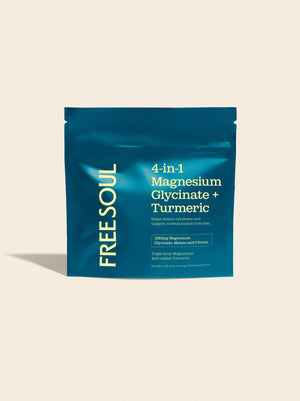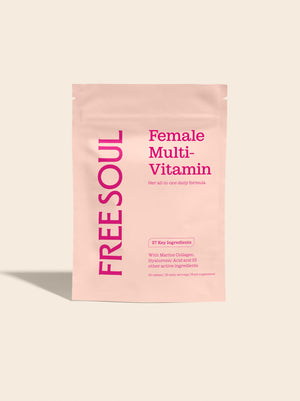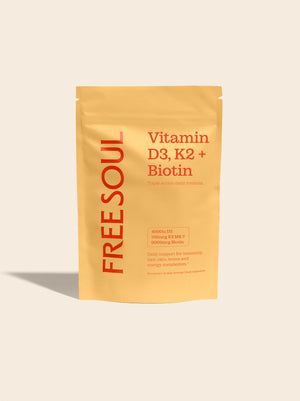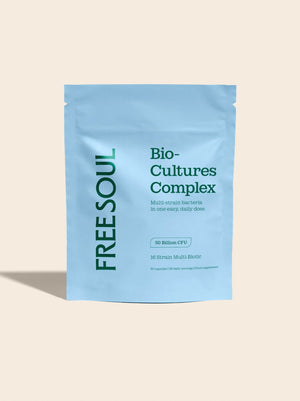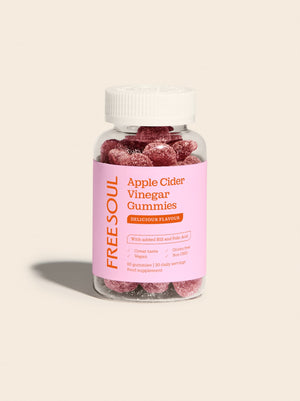Inflammation is a natural process that occurs in response to injury or infection, but chronic inflammation can lead to a number of health issues. You're likely no stranger to inflammation. Whether it's caused by an injury, illness, hormone fluctuations or just the general stresses of life, inflammation can wreak havoc on your body and make you feel less than your best. But the good news is that there are plenty of hacks you can use to reduce inflammation and start feeling better right away.
Incorporate anti-inflammatory foods
Adding specific foods to your diet that are known to have anti-inflammatory properties can help support your body's natural anti-inflammatory processes. These include foods like;
- Fatty fish: such as salmon, mackerel, and sardines contain omega-3 fatty acids, which have been shown to reduce inflammation. Aim for at least two servings of fatty fish per week.
- Berries: such as blueberries, strawberries, and raspberries are rich in antioxidants, which can help reduce oxidative stress and inflammation.
- Leafy greens: such as kale, spinach, and collard greens are rich in vitamins and minerals and contain anti-inflammatory compounds such as flavonoids and carotenoids.
- Nuts: such as almonds and walnuts are rich in healthy fats, fibre, and antioxidants, which can help reduce inflammation.
Other anti-inflammatory foods include; garlic, green tea, turmeric and avocado. Incorporating these foods into your diet can help reduce inflammation and promote overall health.
Be mindful of ultra-processed and sugary foods
Processed and sugary foods can contribute to inflammation in the body. These foods are often high in refined carbohydrates, unhealthy fats, and additives, which can trigger an inflammatory response. Instead, opt for whole, unprocessed foods that are rich in nutrients and fibre majority of the time. There is no need to cut anything out completely, but being mindful of your food choices and enjoying treat foods in moderation is beneficial. Remember that small changes over time can make a big difference in the long run, and it's never too late to start making healthier choices.
Get enough sleep
Getting enough sleep is crucial for overall health, including reducing inflammation. During sleep, the body repairs and regenerates tissues, including those that may have been damaged by inflammation. Chronic sleep deprivation, on the other hand, can contribute to inflammation, as well as other health problems like obesity, diabetes, and heart disease.
Most adults need 7-9 hours of sleep per night to function at their best. Establishing a consistent sleep schedule and practising good sleep hygiene, such as avoiding screens before bed, can help promote better sleep. If you're having trouble sleeping, talk to your healthcare provider, as there may be an underlying condition contributing to your sleep difficulties.
Manage stress
Stress is a normal part of life, but chronic stress can have negative effects on the body. Stress triggers the release of hormones like cortisol and adrenaline, which can contribute to inflammation in the body. In addition, stress can lead to poor sleep, unhealthy eating habits, and other behaviours that can further contribute to inflammation. Managing stress is therefore important for reducing inflammation and promoting overall health.
Some techniques for managing stress include deep breathing, meditation, yoga, and exercise. These practices can help reduce stress hormones, promote relaxation, and improve overall well-being. It's also important to find healthy ways to cope with stress, such as talking to a friend or therapist, engaging in a hobby, or taking a break from technology.
Stay hydrated
Drinking enough water is important for many aspects of health, including reducing inflammation. Water helps flush toxins and waste products from the body, including those that may contribute to inflammation. In addition, dehydration can lead to a number of negative health outcomes, including fatigue, headaches, and constipation.
The amount of water you need depends on a variety of factors, including your age, activity level, and climate. As a general rule, aim for 8-10 cups of water per day. You can also get water from other sources, such as fruits, vegetables, and soups. To make sure you're staying hydrated, pay attention to the colour of your urine - it should be a light yellow colour. If it's dark yellow or amber, you may be dehydrated and should drink more water.
Exercise regularly
Exercise is an effective way to reduce inflammation in the body. Exercise decreases visceral fat, increases anti-inflammatory cytokines, improves insulin sensitivity, reduces oxidative stress, and lowers inflammatory markers such as CRP and IL-6. Aim for at least 30 minutes of moderate-intensity exercise most days of the week, including activities such as brisk walking, cycling and swimming. It's essential to find an exercise routine that works for you and your lifestyle.
Use herbs and spices
Herbs and spices are a delicious way to reduce inflammation in the body. Turmeric contains curcumin, which has potent anti-inflammatory properties, and ginger contains gingerols and shogaols, which have been shown to reduce inflammation. Garlic contains allicin, which has anti-inflammatory effects, and cinnamon has cinnamaldehyde, a compound that can also reduce inflammation. Rosemary contains rosmarinic acid and carnosic acid, which are anti-inflammatory compounds. Adding these herbs and spices to your diet is an easy way to help reduce inflammation, and you can experiment with different combinations and recipes to find what works best for you.
Incorporating these hacks into your daily routine can help reduce inflammation in the body and improve your overall health by supporting your body's natural anti-inflammatory processes. Remember, small changes can add up over time, so start with one or two hacks and build from there. Your body will thank you!
Written by Harriet Lidgard
Nutritionist (BSc) & Health Coach
**At Free Soul, your wellbeing is our priority, and although we pride ourselves on our expertise in women's health and wellbeing, it is important to acknowledge the individuality of each person. Features published by Free Soul are not intended to treat, diagnose, cure or prevent any disease, or replace the advice of your GP. We always recommend consulting with a healthcare provider if you encounter any health concerns, and we’ll always be here to support you so you’re never alone on your journey.


